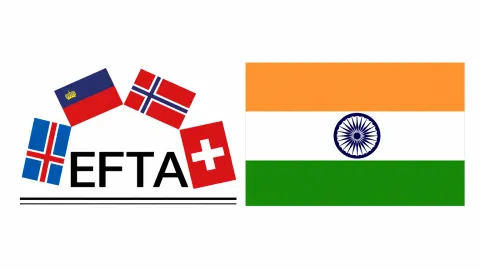Brazilian STJ Reaffirms Its Pro-Enforcement Stance Toward Foreign Arbitral Awards
August 11, 2025
In a recent decision, the Brazilian Superior Court of Justice ("STJ") reaffirmed its pro-enforcement stance toward foreign arbitral awards by granting recognition to two awards rendered in the United Kingdom under the auspices of the Chartered Institute of Arbitrators ("CIArb"). The case, HDE 8305/EX, involved a dispute between Prodigy Finance, an Irish financial institution, and a Brazilian borrower who defaulted on student loans used to fund an Executive MBA in the US.
The decision addressed the validity of service, the arbitrability of consumer disputes, and the impact of high legal costs on access to justice.
Background
Prodigy Finance and a Brazilian borrower concluded two international student loan agreements to finance an Executive MBA abroad. Both contracts were governed by English law and contained arbitration clauses providing for arbitration seated in London under the CIArb Business Arbitration Scheme.
Following the borrower’s default on both loans, Prodigy Finance initiated two arbitral proceedings. After receiving the claimant’s requests for arbitration, the CIArb emailed the respondent and sent him a copy of the records via DHL courier to the address provided in the loan agreements. However, the respondent neither replied nor paid its share of the arbitration fees. The CIArb appointed the sole arbitrator, who then issued procedural directions to both parties via email. Subsequently, the claimant filed the statements of claim, which were sent to the respondent via DHL courier.
Given the respondent’s failure to file a defense or otherwise participate in the proceedings, the sole arbitrator then issued the awards, ordering the respondent to pay the outstanding principal amounts, interest, and arbitration costs.
Regarding the respondent’s service, the sole arbitrator noted that the loan agreement contained obligations requiring the respondent to keep the claimant informed of his current email address, as well as permitting the claimant to serve notices by email. He also found evidence on the record that showed that the respondent had effectively used the email address provided in the loan agreement to contact the claimant in the past. In light of this, the sole arbitrator ultimately found that the respondent had been properly served with the notice of the arbitration in accordance with the provisions of the agreement and the applicable arbitration law, English law, but chose not to participate in the proceedings.
Prodigy Finance then sought recognition of the awards before the Brazilian STJ. The respondent challenged the recognition on three main grounds. First, he claimed he was never properly notified of the arbitral proceedings and only became aware of them during the recognition stage in Brazil. Second, he contended that the dispute arose from a consumer relationship, and under Brazilian law, such matters cannot be subject to arbitration without the consumer’s express and informed consent, which would render the arbitration clause invalid. Third, he argued that the costs of defending himself in an arbitration in the UK were prohibitively high, effectively denying him access to justice and violating the principle of human dignity.
The Decisions
The STJ Reporting Justice granted recognition in a single-justice decision on January 22, 2025, holding that all formal requirements under Brazilian law were met. The defendant appealed the decision, which was ultimately upheld by the Special Panel of the STJ on March 28, 2025.
First, the STJ held that the validity of service must be assessed under the applicable arbitration law and contractual rules, rather than under Brazilian standards. In this regard, the STJ found that service by DHL and email was valid under the 1996 UK Arbitration Act – which was the applicable arbitration law – as well as under the arbitration clause and the CIArb rules. The respondent’s denial of receipt was deemed insufficient to rebut documentary evidence of delivery.
Second, the STJ did not expressly address the arbitrability of consumer disputes or the validity of the arbitration clause in loan agreements under Brazilian law. Rather, the STJ held that recognition proceedings are limited to verifying formal aspects of the arbitral award, and are not the proper forum to address the merits of the arbitral award or the validity of the agreement.
Third, the argument that high legal costs in the UK violated the respondent’s right to a fair trial was rejected by the Reporting Justice in the single-justice decision. The Reporting Justice held that financial hardship does not violate human dignity, particularly when the defendant voluntarily entered into the agreements with an Irish institution. The respondent did not appeal the monocratic decision on this ground, so it was not addressed by the STJ on the March 2025 decision.
The defendant filed a constitutional appeal against the STJ decision, alleging violation of due process and public policy under Art. 5, LV of the Brazilian Constitution. The appeal is currently pending before the Federal Supreme Court ("STF"). Once the STF issues a final decision on the recognition proceedings, enforcement will require subsequent proceedings before a federal court, per Art. 109, X, of the Brazilian Federal Constitution.
Analysis
The decisions reaffirm the limited scope of the STJ jurisdiction in recognition proceedings, which is restricted to the formal requirements provided in Art. 963 of the Brazilian Civil Procedure Code (BCPC) and Arts. 38 and 39 of the Brazilian Arbitral Act (BAA).
Indeed, the recognition of foreign awards depends on the validity of the service of process in the foreign proceedings (Art. 963, II, of the BCPC). Particularly for foreign arbitral awards, recognition is denied when the defendant did not receive notice of the appointment of the arbitrator or the arbitral proceedings (Art. 38, III, of the BAA).
However, the validity of service is not a matter to be addressed under Brazilian procedural law, but rather under the applicable arbitration law. To that effect, the sole paragraph of Art. 39 of the BAA stipulates that service of process on a Brazilian resident does not constitute a violation of public policy if it is conducted in accordance with the arbitration agreement or the procedural law of the country where the arbitration took place, provided the party had sufficient time to properly defend itself. STJ case law confirms that it is not necessary for the respondent to be served by letter rogatory or other similar means. Service by email or private courier is enough if it is admitted under the applicable law (SEC 6365/EX, Reporting Justice Eliana Calmon, judged on February 6, 2013; SEC 3660/GB, Reporting Justice Arnaldo Esteves Lima, judged on May 28, 2009).
In the present case, the STJ deferred to the sole arbitrator’s analysis on the validity of service. In this regard, the sole arbitrator relied on several provisions of the loan agreements, which allowed the respondent to be served via email. In the recognition proceedings, the claimant also provided evidence that service of process via email and DHL courier is valid under Section 76 of the UK Arbitration Act 1996 and Art. 4 of the CIArb Rules.
The STJ also rejected the respondent’s arguments regarding the consumer nature of the dispute, which can be divided into two different issues: (i) the possibility of resolving consumer disputes through arbitration and (ii) the supposed invalidity of arbitration clauses in consumer contracts under Brazilian law. On both issues, the STJ’s stance demonstrated deference to foreign arbitration law.
First, a foreign award will not be recognized in Brazil if the subject matter of the dispute may not be resolved by arbitration under Brazilian law (Art. 39, I, of the BAA). Art. 1 of the BAA provides a broad standard for objective arbitrability: any dispute involving disposable property rights can be resolved through arbitration. As such, there is no provision effectively prohibiting consumer disputes from being resolved through arbitration.
Second, under Art. 38, II, of the BAA and Art. V(a) of the New York Convention, the STJ could deny recognition of a foreign arbitral award if the arbitration clause is deemed invalid. However, the validity must be assessed under the law chosen by the parties or, if no law is specified, under the law of the country where the award was made. Accordingly, when faced with challenges to the validity of an arbitration clause, the STJ often defers to the arbitral tribunal’s conclusions on the subject as per the relevant foreign law (SEC 11106/EX, Reporting Justice Herman Benjamin, judged on June 17, 2017).
In the case at hand, the respondent relied on Art. 51, VII, of the Brazilian Consumer Protection Code and Art. 4, § 2, of the BAA, according to which (i) arbitration clauses in consumer contracts are deemed invalid if they mandate compulsory arbitration, and (ii) the efficacy of arbitration clauses in adhesion contracts depends on the adhering party taking the initiative to commence the arbitration or expressly agreeing with its commencement. However, both provisions concern the validity or efficacy of the arbitration clause under Brazilian law, and not under the law chosen by the parties in the present case (English law). Therefore, the STJ correctly chose not to address the respondent’s arguments in this regard.
Conclusion
The STJ's stance demonstrates deference to international arbitral tribunals and the application of foreign law regarding the validity of service and arbitration clauses. This approach underscores Brazil's commitment to upholding international arbitration standards and fostering a reliable environment for the recognition and enforcement of foreign arbitral awards.
You may also like











